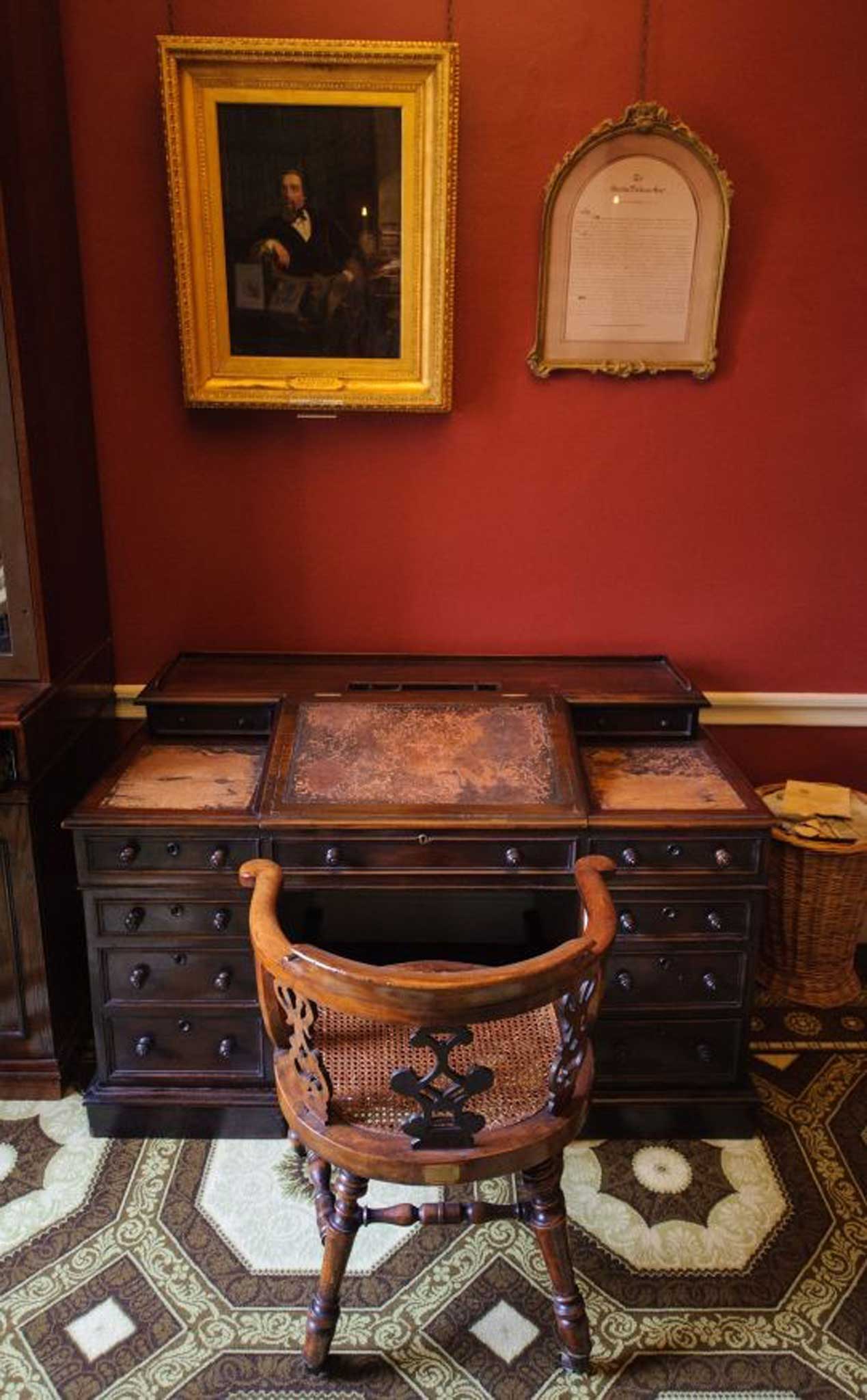Boyd Tonkin: The Dickens bicentenary was a festival of British hypocrisy
The Week in Books

As a whole, I don't much care for sacred relics. But last week, in the dimly lit study of a tall narrow house between Bloomsbury and Holborn, I came closer to venerating a holy fetish than in any Baroque basilica.
The Charles Dickens Museum - at 48 Doughty Street, where the upcoming young writer lived between 1837 and 1839 - has re-opened after a £3m. refurbishment, just in time for the final days of the bicentenary year.
With the business end of the museum now transferred next door to number 49, the rising star's first proper family home - birthplace of Oliver Twist and Nicholas Nickleby, as well as of his older children - glows with a sense of period, place and indeed presence enhanced by items from Dickens's later residences.
These include the desk and chair - from the cherished house at Gad's Hill that he bought in 1856 - where Great Expectations (and Our Mutual Friend, and A Tale of Two Cities) first moved from mind via pen to paper. You can see this hallowed furniture in RW Buss's painting "Dickens's Dream", as a crowd of immortal shadows rises from the novelist's seething imagination and floats free of the desk.
At the top of the house, in the rooms where the children and servants would have slept, the museum shifts from a recreation of the home to an interpretation of the work. Millions still love Dickens, the captions and quotations gently underline, because he made the unseen and unheard outsiders of the Victorian and of most later ages - the children, the poor, the jailed, the simple, the homeless, the outcast - not only visible and audible, but the absolute moral focus and fulcrum of his books. So, the question arises (or at least it did for me): has the heritage jamboree of the 2012 bicentennial brought any signs of a deeper respect for Dickensian values as well for Dickensian brands?
I suspect not. We now have a Chancellor - heir to an Irish baronetcy and to a family fortune made, Dickensianly enough, in posh wallpaper - who scoffs at the unemployed who slumber late with their curtains drawn. About this kind of lordly spite, delivered from the condescending heights of wealth and privilege, Dickens of course wrote the book - several times over, but nowhere better than in A Christmas Carol.
Piquantly, a panel in the museum carries the second ghost's riposte to Scrooge and the "wicked cant" that dismisses the poor and vulnerable as an expendable drag on resources: "Will you decide what men shall live, what men shall die? It may be, that in the sight of Heaven, you are more worthless and less fit to live than millions like this poor man's child. Oh God! To hear the insect on the leaf pronouncing on the too much life among his hungry brothers in the dust!" Our smug insects on the leaf still sneer and still sermonise at those "beneath".
Later, when the spirit shows Scrooge the symbolic pair of feral children, "yellow, meagre, ragged, scowling, wolfish", it treats the boy Ignorance as more dreadful than the girl Want. "Beware them both… but most of all beware this boy, for on his brow I see that written which is Doom, unless the writing be erased." In the 2011-2012 financial year, local authorities in Britain closed or dumped 130 public libraries; the axe hovers over 300 more. Newcastle plans to shut most of its branches; this week (just one case among scores of local protests), a court granted an eviction order against the so-called "squatters" who with warm community support have kept open the branch where as a child I learned to love libraries, Friern Barnet.
Although the year of Dickens has delivered some wonderful gifts - books, shows, films, the revamped museum itself - the whole business has descended into a grand festival of British hypocrisy. We adore the costumes and the characters. As for the conscience and compassion that alone make them live and breathe: these are hard times, and we're all in this together, prates the insect on the leaf. In 2012 the "Inimitable" has never been more honoured - or more neglected.
Celebrity chefs: a tasty way to preserve print?
Once again, Jamie Oliver has cleaned up in the Christmas sales stakes, with his 15-Minute Meals easily outselling all its rivals. His festive number-one also represents a sort of rearguard victory for print, since you can't at the moment buy it for the Kindle. E-readers remain pretty useless for most cookbooks if you want to use them in the kitchen, and you can't pass on the digital edition as a gift. Who would have thought it? Star chefs, those deeply irritating show-ponies of celebrity culture, are helping to preserve the arts of print.
What's become of Browning?
However misunderstood, Dickens has been ubiquitous for more than a year. Spare a thought for the poet Robert Browning, his almost-exact contemporary (born 7 May 1812), whose bicentenary has passed with scarcely a murmur beyond the quiet halls of the academic congress. Yet any reader of today who enjoys (to cite just one poetic descendant) the dramatic monologues of Carol Ann Duffy ought to show a little interest in the moulder and master of the form. Browning at least still commands some curiosity for his romance with Elizabeth Barrett. And, thanks to Baylor University in Texas (which holds many of them), the couple's celebrated love letters have never been easier to view. So make up for a year's sad neglect with an illuminating browse through one of the landmark liaisons of the 19th century, via digitalcollections.baylor.edu/
Subscribe to Independent Premium to bookmark this article
Want to bookmark your favourite articles and stories to read or reference later? Start your Independent Premium subscription today.

Join our commenting forum
Join thought-provoking conversations, follow other Independent readers and see their replies